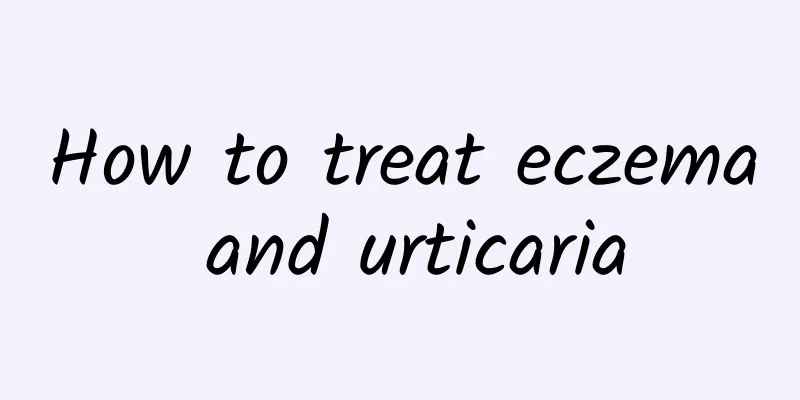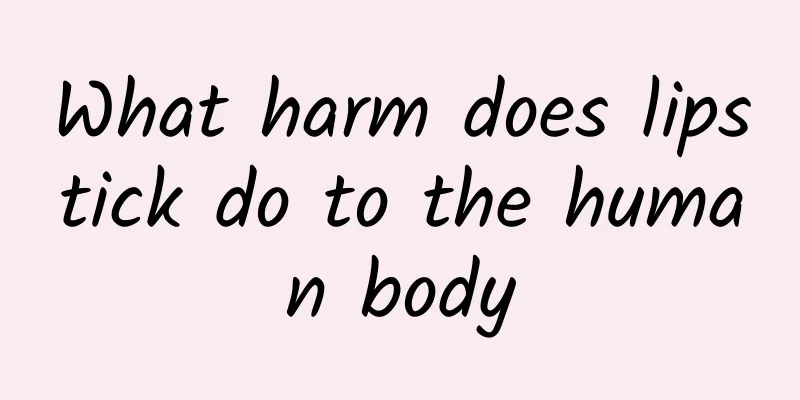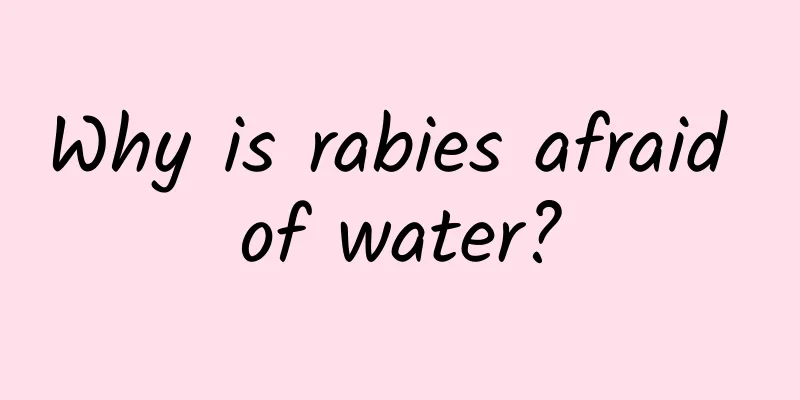How to treat eczema and urticaria

|
Eczema is a skin inflammatory reaction with severe itching caused by a variety of internal and external factors. It is divided into three stages: acute, subacute and chronic. The acute phase has an exudative tendency, while the chronic phase has infiltration and hypertrophy. Some patients directly present with chronic eczema. The skin lesions are characterized by polymorphism, symmetry, itching and easy recurrence. The cause of urticaria is very complicated, and the cause cannot be found in about 3/4 of patients, especially chronic urticaria. The common causes include: food and food additives; inhalants; infection; drugs; physical factors such as mechanical stimulation, cold and heat, sunlight, etc.; insect bites; mental factors and endocrine changes; genetic factors, etc. Here are some tips on how to treat eczema and urticaria: The causes of eczema are complex, and it is easy to recur even after improvement through treatment, making it difficult to cure. Because the clinical morphology and location are unique, the medication varies from person to person. 1. General prevention and control principles Look for possible triggers, such as work environment, living habits, diet, hobbies, thoughts and emotions, as well as the presence or absence of chronic lesions and internal organ diseases. 2. Internal therapy Choose antihistamines to relieve itching, and use two together or alternately if necessary. Generalized eczema can be treated with oral or injected corticosteroids, but they should not be used for a long time. 3. Topical therapy Choose appropriate dosage form and medicine according to the condition of skin lesions. For acute eczema, local washing and wet compresses with normal saline, 3% boric acid or 1:2000-1:10000 potassium permanganate solution, and calamine lotion for astringency and protection. Subacute and chronic eczema should be treated with appropriate glucocorticoid creams, tar preparations or immunomodulators, such as tacrolimus ointment and pimecrolimus ointment. Add antibiotic preparations for secondary infection. Treatment of urticaria: 1. General treatment Because the causes of urticaria vary, the treatment effects are also different. The specific treatment measures are as follows: (1) Eliminate the cause. Every patient should strive to find the cause of the attack and avoid it. If the cause is infection, the infected lesions should be treated actively. If the allergy is caused by drugs, the allergy medication should be stopped; if the allergy is caused by food, find out the allergic food and do not eat this food again. (2) Avoid inducing factors. For example, for cold urticaria, you should keep warm; for acetylcholine urticaria, you should reduce exercise, sweating and mood swings; for contact urticaria, you should reduce the chance of contact. 2. Medication |
<<: How to treat eczema in children
>>: Mugwort and Sichuan pepper for eczema
Recommend
What is Pangdahai
Plantago ovata is very common and widely used. It...
Pain in left lower abdomen during menstruation
Menstruation is a very painful thing for female f...
Pain at the root of the tongue in the elderly may be a hidden danger of some serious disease
Many people regard tongue pain as heat in the bod...
The efficacy and function of Panax notoginseng salvia powder
Many people like to drink Panax notoginseng tea e...
Itchy nose and sneezing after running
After running, you may feel an itchy nose and sne...
Is sweat steaming effective for weight loss and beauty?
Beauty and slimming seem to be the goals pursued ...
Are edible flavors harmful to pregnant women?
Edible flavoring is something that can add flavor...
Emergency treatment and four stages of recovery for ankle sprains
Life lies in exercise. Many people like to exerci...
Symptoms and treatment of rheumatism of the feet
Rheumatism is a very common disease in daily life...
Can pregnant women drink iced mineral water?
It is very beneficial for pregnant women to drink...
The difference between chicken pearl and chicken bone grass
Chicken bone grass is the dried whole plant of th...
10 foods to warm the stomach when you have a cold stomach, save them quickly
Both cold stomach and cool stomach can cause stom...
Can gout eat chicken?
Chicken is the most common meat in our lives. It ...
Causes of high luteinizing hormone
Whether it is men or women, there is progesterone...
What is the difference between Cordyceps and Cordyceps sinensis
For us, Cordyceps sinensis should be familiar to ...









